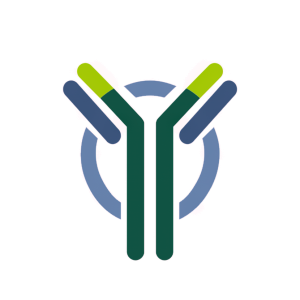Y-mAbs Hosts Virtual Radiopharmaceutical R&D Update Highlighting Clinical Progress and Expanded Pipeline
Rhea-AI Summary
Positive
- Trial 1001 Part A demonstrated positive tumor uptake and safety profile with no serious adverse events
- GD2-SADA platform validated in human trials with predictable protein clearance rates
- New 'Proteus' radiohapten shows potential for improved tumor uptake and retention
- Pipeline expansion into high-value oncology areas (lung, women's, and GI cancers)
Negative
- Extended timeline for clinical progression with Bridge study not starting until 1H 2026
- Part B of Trial 1001 delayed until 1H 2027
- Current data limited to initial safety and protein clearance, lacking efficacy results
News Market Reaction
On the day this news was published, YMAB gained 4.76%, reflecting a moderate positive market reaction.
Data tracked by StockTitan Argus on the day of publication.
- Company’s Part A data readout from first-in-human Phase 1 Trial 1001 in patients with recurrent or refractory metastatic solid tumors known to express GD2, validates GD2-SADA as safe, tolerable and able to achieve targeted in vivo conjugation of 177Lu-DOTA
- Increased tumor retention and total tumor uptake anticipated by using optimized universal Radiohapten
- Company plans to initiate a Trial 1001 Bridge study (Part 2A) with optimized Radiohapten, “Proteus”, in 1H 2026 with data readout in 2H 2026; Part B of Trial 1001 anticipated to initiate with Proteus in 1H 2027 with data readout in 2H 2027
- Expanded Radiopharmaceutical pipeline to focus on target franchise areas in oncology, with specific programs that maximize pretargeting approach in high-value commercial targets
- Company to host virtual Radiopharmaceutical R&D update today at 8:00 a.m. ET
PRINCETON, N.J., May 28, 2025 (GLOBE NEWSWIRE) -- Y-mAbs Therapeutics, Inc. (the “Company” or “Y-mAbs”) (Nasdaq: YMAB), a commercial-stage biopharmaceutical company focused on the development and commercialization of novel radiopharmaceuticals, and commercial stage antibody-based therapeutic products for the treatment of cancer, today announced that the Company plans to highlight progress across its Radiopharmaceutical Business Unit during a virtual R&D update to be held today, Wednesday, May 28, 2025 at 8:00 a.m. ET.
“At Y-mAbs, our mission is to deliver innovative therapeutic solutions for life-threatening diseases and improve the lives of patients and their families,” said Michael Rossi, President and Chief Executive Officer. “We are excited to provide these updates across our Radiopharmaceutical Business today, share data confirming our pretargeted approach has been validated in humans, and reiterate the potential of our platform to deliver novel products that we believe will have a meaningful impact on how we treat certain cancers. Based on today’s update, we reaffirm our commitment to accelerating the clinical advancement of our Self-Assembly DisAssembly Pretargeted radioimmunotherapy (“SADA PRIT”) technology platform and pipeline.”
“The complete Part A data from Trial 1001 highlighted today provides further validation for our novel SADA PRIT technology platform,” said Natalie Tucker, Radiopharmaceutical Business Unit Head. “This data from Part A of Trial 1001 adds to the substantial learning we have developed through clinical and preclinical research regarding our SADA PRIT technology. Based on our work, we believe that SADA is a truly differentiated pretargeted platform positioned to potentially disrupt the radiopharmaceutical industry and significantly improve patient outcomes.”
Radiopharmaceutical R&D Update Highlights
GD2-SADA Phase 1 Clinical Trial (Trial 1001): Part A Completed
- The primary objective of Trial 1001 is to evaluate the safety and tolerability of GD2-SADA in adult and adolescent patients with recurrent or refractory metastatic solid tumors, including small cell lung cancer, sarcomas, malignant melanomas, and high-risk neuroblastoma. In Part A, the Company first explored variable protein doses of 0.3, 1.0, and 3.0 mg/kg and a pre-targeting interval of two to five days.
- Of the 22 patients dosed with both the GD2-SADA Protein and 177Lu-DOTA, nine patients had positive GD2 expression, per protocol, and were eligible for the therapeutic stage of the study to receive up to 200 mCi of 177Lu-DOTA.
- The initial concentration of administered GD2-SADA Protein correlated with the amount of GD2-SADA in serum at the Cmax and over time (AUC).
- The GD2-SADA Protein PK was highly reproducible within cohorts, and when normalized by dose concentration similar Cmax and clearance rates were observed over time.
- These results demonstrate that the GD2-SADA Protein clearance rate is reliably correlated to dose concentrations and PK provides a roadmap for tailoring the clearance interval prior to isotope administration.
- Higher concentrations of 177Lu-DOTA were correlated with higher GD2-SADA Protein concentrations, indicating effective targeting of the 177Lu-DOTA to GD2-SADA.
- Part A of Trial 1001 demonstrated positive tumor uptake and quantifiable absorbed dose to the tumor at 30 mCi.
- Both the GD2-SADA and 177Lu-DOTA administrations were generally safe and well-tolerated. No treatment-related serious adverse events occurred across all dosing cohorts and there were no reports of serious treatment-related pain that has been historically associated with dosing of anti-GD2 therapies.
SADA Optimization Data
- The Company completed a number of pre-clinical studies over the last few quarters to evaluate multiple GD2-SADA-177Lu-DOTA molecule constructs for optimizing tumor-to-organ ratios. Results from this extensive work have demonstrated that the 177Lu-DOTA and molecule formulation can be optimized to improve tumor uptake and retention. Accordingly, the Company has chosen to move forward with “Proteus,” a novel universal radiohapten which has demonstrated the potential to expand access to a range of isotopes with theranostic applications.
- Y-mAbs is committed to advancing its GD2-SADA program and achieving accelerated validation of Proteus to leverage across its platform and new target programs. The Company plans to file an amendment to its current IND for Trial 1001 to incorporate Proteus for a Bridge study (Part 2A) as part of Trial 1001. The Bridge study aims to assess the safety of Proteus in patients and the impact of mass dose on the therapeutic index. The Company anticipates initiating the Bridge study in the first half of 2026.
- Following completion of the Bridge study, Y-mAbs anticipates launching the dose escalation portion of Trial 1001, Part B, which is expected to be a Phase 1/2 clinical trial, in the first half of 2027 with data in the second half of 2027.
Expanded Radiopharmaceutical Development Pipeline
- Following a systematic evaluation to identify optimal targets for its novel SADA platform, Y-mAbs has selected lung cancer, women’s cancers, and gastrointestinal cancers as target oncology franchise-expanding opportunities. In addition, the Company has established a discovery and pre-IND molecular imaging portfolio, complementary to its planned therapeutic portfolio. The Company anticipates filing an IND for its first molecular imaging asset by the end of 2025.
Webcast Information
The duration of the virtual Radiopharmaceutical R&D update is expected to be 90 minutes. A live audio webcast of the call will be available on the Investor Relations section of the Company’s website at https://ir.ymabs.com/events-and-presentations/events. The webcast will be archived for at least 30 days.
About Y-mAbs
Y-mAbs is a commercial-stage biopharmaceutical company focused on the development and commercialization of novel, radioimmunotherapy and antibody-based therapeutic cancer products. The Company’s technologies include its investigational Self-Assembly DisAssembly (“SADA”) Pretargeted Radioimmunotherapy Platform (“PRIT”) and bispecific antibodies generated using the Y-BiClone platform. The Company’s broad and advanced product pipeline includes the anti-GD2 therapy DANYELZA® (naxitamab-gqgk), the first FDA-approved treatment for patients with relapsed or refractory high-risk neuroblastoma in the bone or bone marrow after a partial response, minor response, or stable disease to prior therapy.
About GD2-SADA PRIT
GD2-SADA is a bispecific fusion protein that tightly binds to the glycolipid GD2 and Lutetium 177 (Lu 177)-DOTA, a chelated or “caged” radionuclide. In the first step of pre-targeted radiotherapy, non-radiolabeled GD2-SADA tetramers are infused and bind to GD2-expressing solid tumors, while unbound GD2-SADA protein disassembles into low molecular weight monomers that are removed by the kidney. The second infusion delivers the “radioactive payload,” which binds directly to GD2-SADA on tumor cells for localized irradiation. GD2-SADA PRIT with 177Lutetium-DOTA has demonstrated anti-tumor activity in preclinical studies and is currently being investigated in adults and adolescents with GD2-expressing solid tumors in Trial 1001 (NCT05130255).
Researchers at Memorial Sloan Kettering Cancer Center (MSK), including Dr. Nai-Kong Cheung, developed the SADA technology for radioimmunotherapy, which is exclusively licensed by MSK to Y-mAbs. Dr. Cheung has intellectual property rights and interests in the technology, and as a result of this licensing arrangement, MSK has institutional financial interests in the technology.
Forward-Looking Statements
Statements in this press release about future expectations, plans and prospects, as well as any other statements regarding matters that are not historical facts, may constitute “forward-looking statements” within the meaning of Section 27A of the Securities Act of 1933 and Section 21E of the Securities Exchange Act of 1934. Such statements include, but are not limited to, statements about the clinical development of the Company’s Radiopharmaceutical product candidates, including the progress of and results from ongoing clinical trials and the timing of initiation of additional clinical trials; the potential of the Company’s SADA technology to disrupt the radiopharmaceutical industry and significantly improve patient outcomes; and the timing of regulatory filings for the Company’s product candidates and expectations regarding the expansion of its oncology franchise. Words such as ‘‘anticipate,’’ ‘‘believe,’’ “contemplate,” ‘‘continue,’’ ‘‘could,’’ ‘‘estimate,’’ ‘‘expect,’’ “hope,” ‘‘intend,’’ ‘‘may,’’ ‘‘might,’’ ‘‘plan,’’ ‘‘potential,’’ ‘‘predict,’’ ‘‘project,’’ ‘‘should,’’ ‘‘target,’’ “will,” ‘‘would’,’ “guidance,” “goal,” “objective,” and similar expressions are intended to identify forward-looking statements, although not all forward-looking statements contain these identifying words. Our product candidates and related technologies are novel approaches to cancer treatment that present significant challenges. Actual results may differ materially from those indicated by such forward-looking statements as a result of various factors, including but not limited to: risks associated with the Company’s financial condition and need for additional capital; the risks that actual results of the Company’s recent business realignment will not be as expected; risks associated with the Company’s development work, including any delays or changes to the timing, cost and success of our product development activities and clinical trials including if we encounter difficulties enrolling patients in our clinical trials; the risks of delay in the timing of the Company’s or its partners’ regulatory submissions or failure to receive approval of its drug candidates; the risks related to commercializing any approved pharmaceutical product including the rate and degree of market acceptance of product candidates; development of sales and marketing capabilities and risks associated with failure to obtain sufficient reimbursement for products; risks related to the Company’s dependence on third parties including for conduct of clinical testing and product manufacture as well as regulatory submissions; the Company’s ability to enter into new partnerships or to recognize the anticipated benefits from its existing partnerships; risks related to government regulation; risks associated with protection of the Company’s intellectual property rights; risks related to employee matters and managing growth; risks associated with macroeconomic conditions, including the conflict between Russia and Ukraine and Israel and Hamas and sanctions related thereto, international trade policies, including tariffs and trade restrictions, inflation, increased interest rates, uncertain global credit and capital markets and disruptions in banking systems; and other risks and uncertainties affecting the Company including those described in the “Risk Factors” section included in the Company’s Annual Report on Form 10-K for the fiscal year ended December 31, 2024, the Company’s Quarterly Report on Form 10-Q for the quarterly period ended March 31, 2025, and future filings and reports by the Company. Any forward-looking statements contained in this press release speak only as of the date hereof, and the Company undertakes no obligation to update any forward-looking statement, whether as a result of new information, future events or otherwise.
SADA®, SADA PRIT™, DANYELZA® and Y-mAbs® are registered trademarks of Y-mAbs Therapeutics, Inc.

Investor Contact: Courtney Dugan VP, Head of Investor Relations cdu@ymabs.com







